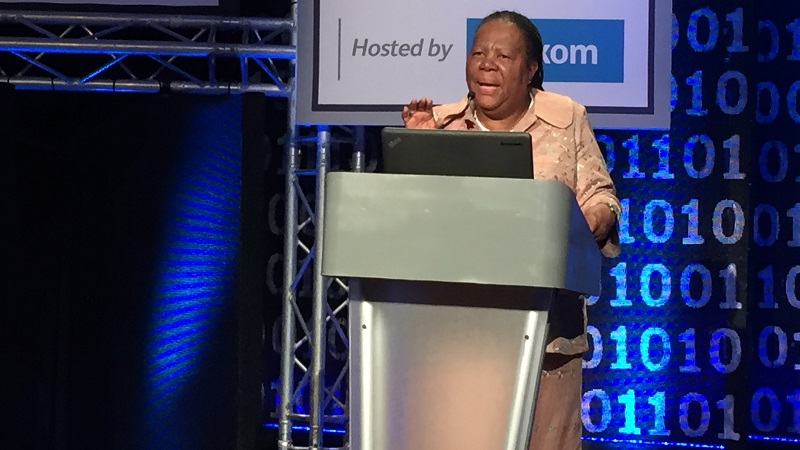Innovation and a spirit of entrepreneurialism is key to solving employment and economic issues in South Africa and the continent beyond, says Science and Technology Minister Naledi Pandor.
But, she adds, the lack of internet access is a major stumbling block to growth.
“Access to the internet is critical,” Pandor told an audience at the annual Southern African Telecommunications Networks and Applications Conference (SATNAC) in Hermanus this morning, “Yet a number of challenges continue to hamper Internet access in South Africa – high broadband costs, limited research and development capacity, and a lack of innovative economic models for providing connectivity to rural communities.”
Pandor said that she believed that while youth unemployment is a major issue across the continent, unlocking the technical skills in the younger generations was key to creating opportunities.
“As Africans, we must develop solutions to address our own unique challenges. As Africans we must position ourselves to compete globally with the rest of the world,” Pandor said, “As Africans we must foster a culture of innovation and entrepreneurship, particularly among our youth. Who better than the youth to take advantage of the unprecedented growth in many technology sectors – in particular in mobile and information and communication technology.”
She added that Africa can speed up innovation with the development of talented scientists and entrepreneurs working in scarce-skills fields.
“We are investing in the capacity to create and diffuse new knowledge,” she said.
“Following global trends, we are investing in the modernisation of research and development infrastructure, and in particular, new instruments and facilities (like the Centre for High Performance Computing, and SKA) as key components in the drive to ensure that we have the capacity to generate new knowledge.”
To address this, she explained that the Department of Science and Technology (DST) has an ICT Research and Development and Innovation Strategy and a Roadmap (2013).
“The Roadmap is being implemented by the CSIR’s Meraka Institute,” she explained, “Its aim is to catalyse the development of an innovative, sustainable and indigenous IT industry that addresses a significant portion of South Africa’s IT needs, as well as attracting investments from global IT corporations in R&D and manufacturing facilities in South Africa.”
But nothing is going to happen overnight, which is why DST has identified five problem areas that need to be addressed: global change, energy security, space science, bioeconomy, and poverty alleviation
“(They all) require strategic IT projects. These strategic areas are good platforms for various applications in climate change modelling and forecasting, environmental monitoring, and other natural science areas that employ the power of high performance computing, mathematics, computational science and software development.”
In closing, the Minister detailed how the DST sets about helping to position South Africa and the African continent as leaders in IT.
“Our aim is to catalyse the development of an innovative, sustainable and indigenous IT industry that addresses a significant portion of South Africa’s IT needs, as well as attracting investments from global IT corporations in R&D and manufacturing facilities in South Africa.”

